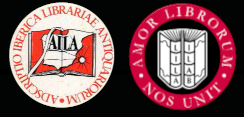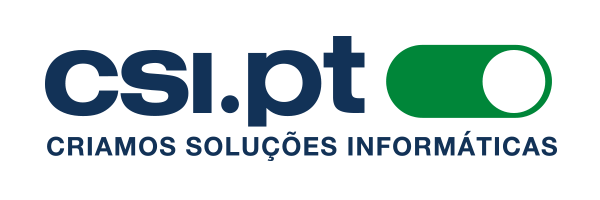


Home |
Temáticas |
Catálogos |
Pedidos |
  |  |
|||||||
|

|
RUGENDAS. (Johann Moritz) HABITANTE DE GOYAS, QUADRO A ÓLEO PINTADO SOBRE MADEIRA. |
|
|
Clique nas imagens para aumentar. DECRETOS E DETERMINAÇOES DO SAGRADO CONCÍLIO TRIDENTINO,q deuê ser notificadas ao pouo, por serem de sua obrigaçãm, E se hão de publicar nas Parochias. Per mandado do serenissimo Cardeal Iffante Dom Henrique Arcebispo de Lisboa, & Legado de latere. Foy acrecentada esta segunda edição por mandado do dito Senhor, com os capitulos das confrarias, hospitaes & administradores delles: que pera facilmente se saberê notamos cõ este sinal. Impresso em Lisboa per Frâcisco Correa, impressor do Cardeal Iffante nosso Senhor. Aos quinze de Octubro. Anno de 1564. Com priuilegio Real. In 8º de 19x14 cm. Com [xxxii] fólios sem numeração. Encadernação do século XX inteira de pele marroquim vermelho, com nervos e ferros a ouro na lombada e nas pastas onde formam esquadria de duplo filete. Folha de rosto com o título e restantes dizeres enquadrados por belíssima xilogravura, ornamentada com frutos, ramagens, figuras e esfinges. Texto ornamentado com quatro iniciais decoradas com as seguintes figuras e passos da Bíblia: dois monges lendo um livro, a Natividade, a Visitação de Maria e o Rei Salomão tocando harpa. Na folha 31 verso apresenta o fac-simile da assinatura de Frei Manuel da Veiga. O livro inclui os seguintes documentos todos do mesmo ano de 1564: Privilégio Real de 20 de Junho, Carta do Cardeal Infante ordenando a impressão da obra, de 29 de Agosto, Bula de Pio IV, sobre a confirmação do Concílio Tridentino de 6 de Janeiro, o conjunto dos Decretos e determinações de folha 5 frente a 31 verso, Carta do Cardeal Infante, de 13 de Setembro, ordenando a execução duma bula de de 16 de Julho de Pio IV sobre o Concílio. Exemplar com assinatura de posse do Cónego Isaías Rosa Pereira, historiador e investigador, datada de 18 de Novembro de 1976. Apresenta a folha de rosto com desgaste superficial, falhas de papel que atingem a ornamentação e o texto sem impedir a leitura, com restauro e espelhada. Com algumas manchas ao longo do texto, mas com o papel muito sonante. Raríssimo impresso quinhentista português. A Porbase apenas tem um exemplar catalogado da BNP e não ocorrem exemplares nos principais catálogos de livreiros e de leilões. De excepcional importância para o estudo da tipografia quinhentista portuguesa, para o estudo da aplicação das normas do Concílio de Trento em Portugal e para a história da Igreja Católica. Este livro tem ainda mais relevância por quatro razões: O Concílio de Trento (1545-1563) reafirmou a doutrina e marcou fortemente a organização da Igreja Católica, a sua forma de se relacionar com o mundo e as formas da vivência da fé, até aos nossos dias, tendo sido apenas alteradas algumas normas pelo Concílio Vaticano II (1962-1965). No Concílio tiveram uma intervenção muito influente os teólogos portugueses de tal maneira que se pode dizer que foi um concílio português. Esse facto levou a uma aplicação do espírito e das normas do concílio em Portugal de forma mais rápida, profunda e completa do que na maioria dos outros países. Por último o livro traduz para português as normas que tinham sido publicadas em latim no mesmo ano, mostrando assim a vontade da Igreja de dar a maior divulgação possível às decisões do Concílio, colocando à disposição de um maior número de pessoas textos muitas vezes reservados aos teólogos e juristas. Frei Manuel da Veiga (Aveiro 1510? - Aveiro 1575) era nesta data monge da Ordem de S. Domingos, formado em cânones, lente de teologia e Revisor Geral de Livros. Em 1566 foi nomeado, pelo Infante D. Henrique, presidente do Tribunal da Inquisição de Évora e exerceu sucessivamente igual cargo na Inquisição de Lisboa e de Coimbra.
Cover page with title and remaining sayings framed by beautiful woodcut, ornamented with fruits, branches, figures and sphinxes. Text ornamented with four decorated capitals with the following figures and steps from the Bible: two monks reading a book, the Nativity, the Visitation of Mary and King Solomon playing the harp. On leaf 31 verso presents facsimile of the signature of Friar Manuel da Veiga. The book includes the following documents, all from the same year 1564: Royal Privilege of 20 June, Letter of the Infante Cardinal ordering the printing of the work, of 29 August, Bull of Pius IV, on the confirmation of the Tridentine Council of 6 January, the set of Decrees and determinations from page 5 front to 31 back, Letter of the Infante Cardinal, of 13 September, ordering the execution of a bull of 16 July of Pius IV on the Council. Copy with handwritten ownership title of Canon Isaías Rosa Pereira, historian and researcher, dated 18 November 1976. Presents the title page with superficial wear, paper flaws that reach the ornamentation and the text without afecting reading, with restoration and mirrored. With some spotting throughout the text, but with very sound paper. Rare Portuguese 16th century printing. Porbase has only one catalogued copy from the BNP and no copies appear in the main booksellers" and auction catalogues. Of exceptional importance for the study of Portuguese 16th-century typography, for the study of the application of the norms of the Council of Trent in Portugal, and for the history of the Catholic Church. This book has even more relevance for four reasons: The Council of Trent (1545-1563) reaffirmed doctrine and strongly marked the organisation of the Catholic Church, its way of relating to the world and the forms of the living out of the faith, right up to the present day, only some norms having been changed by the Second Vatican Council (1962-1965). Portuguese theologians played a very influential role in the Council in such a way that it can be said that it was a Portuguese Council. This led to a more rapid, deeper and complete application of the spirit and norms of the Council in Portugal than in most other countries. Last, but not least, the book translates into Portuguese the norms that had been published in Latin in the same year, thus showing the Church"s will to give the greatest possible dissemination to the Council"s decisions, making available to a greater number of people texts often reserved to theologians and jurists. Frei Manuel da Veiga (Aveiro 1510? - Aveiro 1575) was, at that time, a monk of the Order of S. Domingos, graduated in canons, lecturer in theology and general reviser of books. In 1566 he was nominated president of the Inquisition Court of Évora by Prince Henry the Navigator and successively held the same position in the Inquisition of Lisbon and Coimbra. Referências/References: Iberian Books 70879 (5550) D. Manuel II, 322. Anselmo, 473. Inocêncio IX, 108 e X, 386. Barbosa Machado, II, 441. Referência: 2203PG009
Local: M-11-C-68 Caixa de sugestões A sua opinião é importante para nós. Se encontrou um preço incorrecto, um erro ou um problema técnico nesta página, por favor avise-nos. 
|
Pesquisa Simples




|
||
 |
|||
|